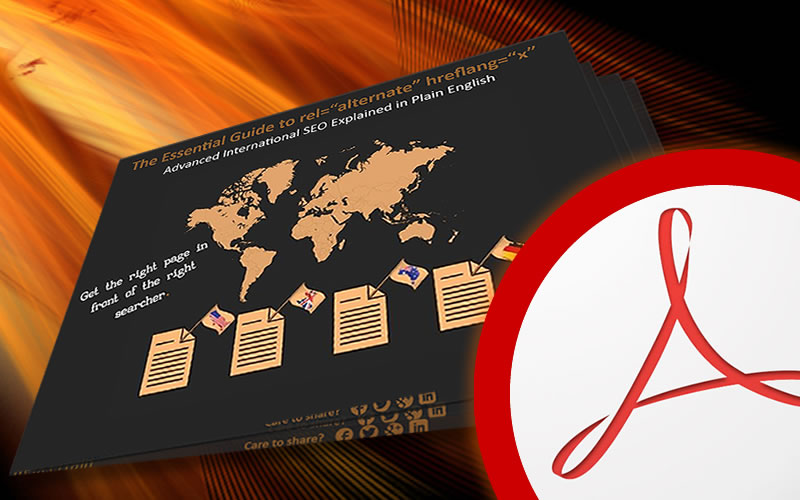Making sure that the right content is displayed to the right people at the right time is always the objective. For international website owners especially, this is a rather complicated task.
The following is far from an exhaustive guide, but it will hopefully serve as a helpful reminder on some of the important issues to keep in mind when operating online in multiple countries. Here are 10 tips:
- If you have the resources and capacity to do so, set up ccTLDs for each market you target. A local domain is the strongest geo-targeting signal in Google’s algorithm.
- If employing a subdirectory structure, make sure to submit a sitemap for each locale site in Google Webmaster Tools in order for Google to index and understand it properly.
- Don’t use Google Webmaster Tools unless you need to (for example not necessary if using ccTLDs as they are already associated with a geographic region).
- Aim to set up local hosting.
- Google was subject to heavy criticism from the international webmaster community for its rel-alternate-hreflang solution by which webmasters needed to add code in the HTML of each page in the cluster to indicate its intended target audience. In a response to the mainly negative feedback it received, Google has now made it possible to specify the hreflang annotations in sitemaps. Doing so has several advantages including smaller page size and easier deployment.
- As always, never rely entirely on machine translation. Team up with natives to ensure your keywords are correct. Once you’ve got a preliminary list of keywords, use whatever keyword tool you prefer to analyse and compare related keywords according to search volume, cost, competition, etc. before deciding on a final set of keywords to rank for.
- Google reigns supreme in most countries worldwide, however, there are still a few and significant frontiers yet to be conquered. Local Russian search engine, Yandex, holds around a 60 percent share of the rapidly growing Russian search market, while Baidu’s dominance in China bears close resemblance to that of Google in other markets, at an 80-85 percent market share. Thus, optimising for these local search engines is imperative to online success in Russia and China.
- Build local links. Doing so will provide search engines with stronger geo-targeting signals and consequently help boost your site’s authority in the local market.
- Displaying prices in local currency is a critical factor for conversion. Despite the obvious logic, it’s surprising how many international sites list prices only in USDs or Euros. In addition, understanding local payment customs and adapting accordingly is key to bottom line success. In Russia, for example, a general lack of trust of electronic payments still very much rules, with the vast majority of the online population preferring to pay for online items with cash.
- Truly extraordinary content often has a universal appeal, but as the words themselves imply, crafting truly extraordinary content is not an easy task to accomplish. Customising your content according to market, however, is a good start to becoming more locally relevant.
The following two tabs change content below.


Immanuel Simonsen
Research Manager at Webcertain
As the Research Manager of multilingual web marketing agency Webcertain, Immanuel heads up the company’s global market research activities and large content marketing projects. He is the author of several reports and guides, including ‘The Essential Guide to Rel-Alternate-Hreflang’ and ‘The Webcertain Global Search and Social Report 2013’. Apart from being a tutor at the International Marketing School -- teaching online marketing professionals on business opportunities around the globe -- Immanuel is a regular speaker at the International Search Summit, a leading event series dedicated to multilingual search and social media marketing.
Latest posts by Immanuel Simonsen (see all)
- Is Baidu losing its crown in China? - July 31, 2015
- Global logistics brand DHL eyes Chinese e-commerce growth - July 27, 2015
- VKontakte To Launch Rival To Instagram - July 21, 2015








[…] Off 10 Tips On How To Successfully Manage Your International Website – Multilingual Search – multilingual-search.com 07/03/2012 Multilingual Search10 Tips On How To Successfully Manage […]